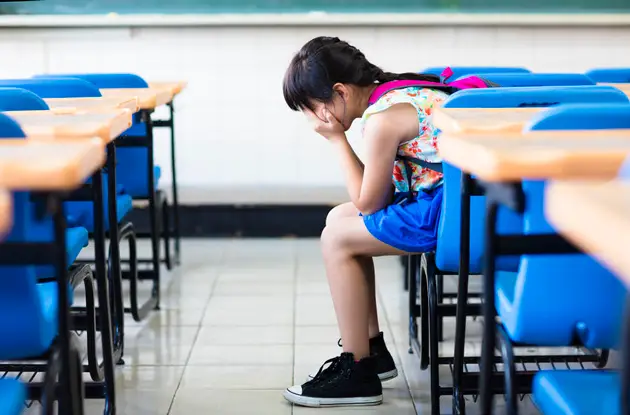When a child can frequently be described as lazy or bored it means that the child is not fully engaged in his work or play environment.
Do you think that your child is lazy? Is she constantly telling you that she is bored? These are the two most frequently uttered critical words that I hear parents use to describe their children (of all ages). Indeed, it can be frustrating and disheartening to feel that your child is not working up to her potential, or not enjoying the world around her. If this sounds familiar, then you might think me a renegade when I say that, when it comes to children, I don’t believe ‘lazy’ or ‘bored’ are real. In fact, when a child’s behavior elicits either of these descriptors more than occasionally, we must dig much deeper to discover the real reason she is behaving this way.
When a child can frequently be described as lazy or bored it means that the child is not fully engaged in his work or play environment. The lazy or bored behavior is a symptom of an underlying concern—a red flag to look deeper. Below I present the three most important triggers, each of which could cause a child to become lazy or bored.
A learning disability, ADHD, or other neurological difficulty
Often, when a child or teen finds schoolwork overwhelmingly difficult or confusing, he will become disengaged and give up rather than continuing to try. A child who has stopped trying will avoid homework and studying for tests, become distracted in class, and appear not to care about school. Neurological issues can be very subtle and can affect even very bright children. If you have any concern about your child’s academic functioning, speak to a school psychologist about having your child evaluated.
Depression
This diagnosis can cause a child or teen to become unmotivated or disinterested in school or socializing. Even mild depression can cause a child to become apathetic and appear lazy, and it is common for depressed kids to express feelings of boredom because they are not able to feel enjoyment in their daily experiences. If your child seems sad, disinterested in activities, withdrawn, weepy or has changes in sleeping or eating habits, she may be depressed—especially if she is experiencing any major changes in her life. Consult with your pediatrician or school psychologist to find appropriate resources to help you and your child.
Overindulgence and overstimulatation
We love our kids, and often we express our love by giving them toys and technology and by providing them with a constant stream of fabulous experiences to enrich their lives. Some kids are able to absorb our ‘material love’ in a way that is positive. However, many become dependent upon this external stimulation, and when they don’t get it, even for a brief amount of time, they feel bored or slump into the couch lazily because they don’t have the internal resources to occupy themselves or feel satisfied without excitement. The best solution to this type of unenthused behavior is to reduce your child’s reliance on you to provide constant entertainment. Instead, he needs to learn how to occupy himself with what he already has, to use his imagination, and to become age-appropriately independent. Retraining a child in this way can be difficult, and could, at first, result in whining and tantrums. However, the payoff is worth it because learning self-soothing techniques is a critical life skill that will benefit your child far into adulthood.





















